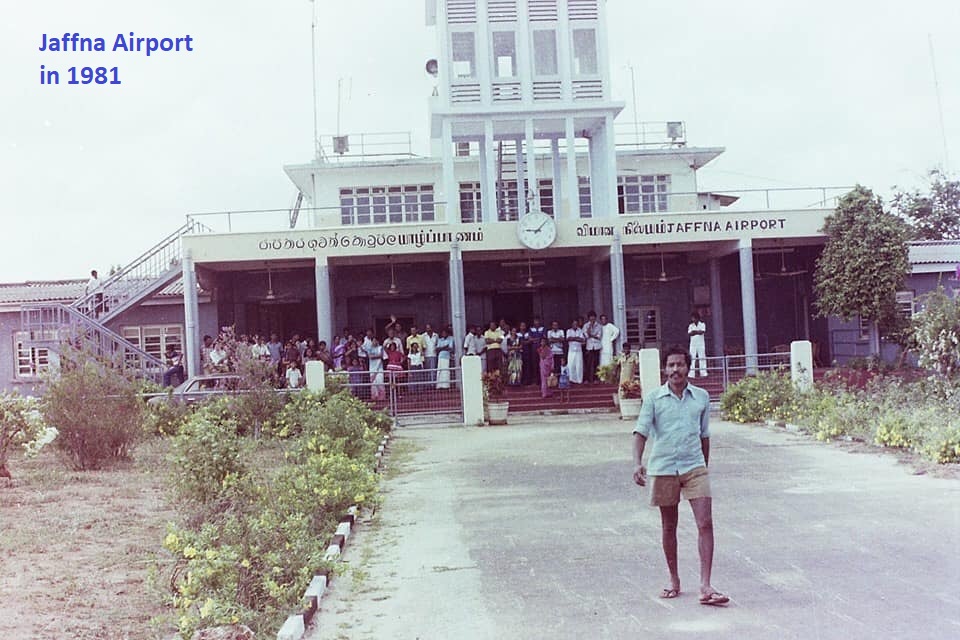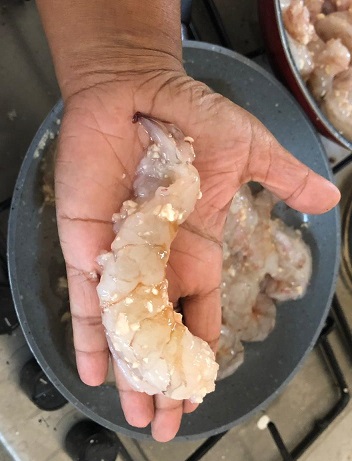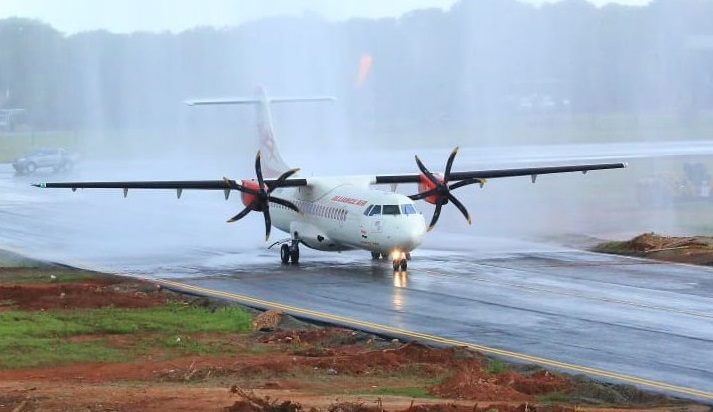By Jekhan Aruliah
The opening, strictly speaking the re-opening, of Jaffna International Airport (IATA airport code JAF) in October 2019 was one of the more startling events in the North since the end of the Sri Lankan Civil War in 2009. In the North we held our breaths as the promise, unfulfilled for years, approached reality. “Believe it when you see it”, we said to each other. We tightly crossed our fingers as the opening date slipped from 15th to 16th to 17th October. We hoped no natural or unnatural incident would postpone the great day until after the next election when all such promises become null and void. Happily on the 17th October 2019 Sri Lanka’s President, PM, Northern Province Governor and other dignitaries turned up, as did a civilian flight from Chennai India. The usual oil lamps were lit, the usual speeches were made etc. JAF became open for international business as it had been until 1981! Hoorah!

So what happens next? When the Civil War ended in 2009 there was a huge burst of optimism. There was expectation of a deluge of investment, of new and revived industries, of plentiful good new jobs and an economic boom. This optimism was reflected in the immediate post-war leap of Northern property and land prices. The deluge never came, property prices fell back. Properties in Jaffna now go for one twentieth the price of their equivalent location in Colombo (compare Jaffna’s Kankesanturai (KKS) Road with Colombo’s Galle Road, main roads running from their respective city centres).
10 years after the end of the war the North continues to loll listlessly along. Not least due to the failure of the private sector to take the lead. And not least due to the failure of investors from outside the Northern Province to engage. Investors who should bring not merely money but also new ideas, experience, knowledge, connections, routes to market, and other intangible assets that are vital for fast-track economic revival.
So why has there been a failure of the private sector investment?
What I have seen in these last four years I have been in Jaffna reminds me of a quip by the American comedian Groucho Marx, “I refuse to join any club that would have me as a member”. Groucho felt he was too lofty to join a club that would stoop so low as to admit him. Investment in post-war North seems to follow Groucho’s stance from both ends of the transaction:
Investors: “I refuse to give money to any enterprise that wants it”
Enterprises: “I refuse to take money from anyone who wants to give it to me”
While this may seem flippant, it is what I have observed in these four years I have been encouraging entrepreneurs and investment here in the North. It is not only investors declining to make investment. Promising enterprises are also declining to accept investment.
Some reasons potential investors into the North fail to invest:
Investors want to see the kind of track record they would want from an enterprise in an established market. 3 years audited accounts; cashflow projections; competitor analyses; market demand analyses; growth projections. In the often informal economy that exists among small businesses in the post-war North, few local enterprises can offer this level of detail.
Investors want too much equity for too little cash, or they walk away. As a result, it is often the weaker more desperate enterprises that accept this deal. Weak enterprises who predictably fail to live up to the investor’s unrealistic expectations. Building the investor community’s impression that all Northern enterprises are weak. As the old saying goes, frequently though not always true, “Good no cheap, cheap no good”.
Investors expect a level of management reporting from the company that is beyond the company management’s experience and ability. Struggling to report “good news” the management may falsify it. Or become driven by it and lose focus on their actual business drivers. It’s not just tiny immature organisations that do this. Such things happen even in the largest sophisticated Western companies, like the UK’s biggest supermarket Tesco.
Investors put money into enterprises and then walk away looking forward to dividends and growth. They assume money is all that is needed, like putting cash on deposit in a good bank. The disappointing performance of these enterprise builds the legend, spread by disappointed investors, that Northern enterprises are not investible
Some reasons Northern Enterprises don’t accept Investors:
Enterprises over-value their businesses, therefore rejecting even good quality investors who want more than a paltry equity stake.
Enterprises fail to understand the non-cash benefits a well chosen investor, coming with more than just cash, can bring. Benefits that include ideas, skills, knowledge, connections, and routes to market.
Enterprises fearing, often with good reason, the excessive interference of the investor. Investors who put in a small amount, a few thousand dollars, then expect to be intrusive and influential to a degree that greatly outweighs their investment.
Enterprises fearing the investor will learn how to do the business and then setup by themselves. Stealing their business ideas lock stock and barrel, and abandoning them to wither and perish.
Some Key Realities in the North
Throwing chunks of money without due diligence and reasonable oversight has entirely predictably dismal results. Enterprises in the North generally need more than just money to grow beyond being small local businesses. To grow into something that can succeed in the National and International marketplace they need guidance and support. A good example of how this is done successfully is the leadership without demanding ownership provided to palmyrah based producers by the entrepreneur who returned from Canada, Suganthan Shanmuganathan, about whom I wrote about some months ago.
The amount of money most enterprises in the North seek is too small to make it worthwhile for many investors to invest the time and energy which are needed, perhaps more than the money is needed, to help the enterprise succeed. They throw a relatively small amount of money they don’t care enough to be diligent about. Then they whine at social gatherings, spreading their disappointments, when the business falls short.
The tragedy is many of these investors who spread word of their disappointment have casually handed over only small amounts of money. I have often heard how they donated a cow or a sewing machine expecting it to be a new sustained source of family income. They come back a few months later to find their gift has been sold by the recipient to finance day-to-day living expenses. When I spoke with the Jaffna Head of a leading international donor, he expressed disappointment that the machinery donated to Jaffna businesses didn’t have the hoped for impact. It is a very common mistake, donors and investors helping the producer produce more without helping him sell more.

After I wrote an article on the potential of the Northern fisheries industry, I was contacted by someone from the Diaspora in Europe raising money to donate a large number of fishing boats to fishermen. I asked him if boats were what they really needed. A few days later I went to the Gurunagar fish market close to Jaffna Fort with a Tamil speaking friend to buy prawns. Lovely jumbo sized crustacea for only Rs2,000 per kilo which we rescued from being packed in ice and sent to Colombo. We spoke to some fishermen there who said they didn’t need boats, but wanted more powerful engines to cover greater distances. Of course, they wouldn’t reject a free boat if they were given it. Whether they would keep and use it is another matter. (By the way, Jaffna International Airport opens a succulent opportunity flying high value crabs, prawns and other seafood to fancy hotels and restaurants in India in far less time than it takes to drive them to Colombo).
Though their investments were often small and poorly thought through, the negative reports coming from disappointed donors and investors blaming the recipients spoil appetites among the wider community for more carefully selected enterprises and more carefully structured investments.
To further add to the disincentive to invest in the North, there are several widely held but evidence-free beliefs. Prime among these is the belief that the Northern people are lazy, living on remittances. And that lazy remittance funded youth are terrorising the North, riding two or three to a motorbike wielding swords. I am told by people in the financial sector in Jaffna, bankers and accountants, that while remittances were indeed widespread during the war now 10 years after the end of the war the amounts coming are greatly reduced. Remittances are now targeted at the elderly and those unable to work due to disability or looking after family. I have not seen data to show that people living hand-to-mouth in London and Toronto are funding able-bodied boys in the North to fill their unearned leisure terrorising their neighbours. Far from being a risky place to be, government figures show in terms of crime and drugs the North is one of the safer areas in Sri Lanka.
Successful private sector investment:
Of the successful investments I have seen in the North, common features include:
Strong connection between the entrepreneur and the investor. This is not always friends & family. It maybe due to professional camaraderie, such as Yarl IT Hub which has spawned exciting infotech enterprises like Senzmate and Arima. It maybe due to an historical link, with land and people in an ancestral village. This connection results in the enterprise and investor working more closely, with greater patience and care. The investor’s interest is more than just money and profit.
A direct presence by the investor in the Northern Province. Either personally, or through trusted individuals who maintain close and effective communications. A successful example is the BBK Partnership Sri Lanka, part of the London based accountants the BBK Partnership, who employ staff in Colombo and Vavuniya with their largest office in Jaffna.
Managed investment into the company when needed to build momentum. Rather than a dollop of cash at the beginning and more dollops every time the company runs into trouble until the investor gets fed up and pulls out. I know a highly frustrated London based investor who did this for several years before pulling out of Jaffna.
The investor bringing the Northern enterprise into the investor’s own business supply chain. Not regarding the investment like a lottery ticket hoping for a big win, but embracing it. So the enterprise’s success is part and parcel of the investor’s own business. A fine example is the coco-peat business I wrote about, where the USA investor exporting coco-peat back to the USA has built a factory creating jobs in the North and buys the raw materials on better terms they would otherwise get from local farmers.
Recognition that investment is not only cash. Connections, skills, mentoring, route to market and market knowledge and also brand new ideas are valuable assets the investor can offer.
There are a small group who have made significant and successful investments in the North. They do vital work, Godspeed to them! Their activities must be highlighted to encourage more like them to come and do business.

“Jaffna, where clouds meet sea meets land”. This poetic comment was tweeted by a passenger inspired as he arrived on the first international commercial flight from India to Jaffna in decades, and brought to my attention by a friend. I hope this important event inspires more than just poetry.
Jaffna International Airport is about more than tourism. It opens a route for investors and executives to fly from India in less than one hour. Fresh produce, including our prized Northern seafood, can reach India far quicker than it does Colombo. If the runway is further improved as promised, flights will come from countries including Malaysia, Singapore and beyond.
Jaffna International Airport opens a gateway to great opportunity for the North. So did the end of the Civil War. 10 years after the end of the War the North still stagnates. 10 years after the opening of Jaffna International Airport we need to have done much better.
( — The writer Jekhan Aruliah was born in Sri Lanka and moved with his family to the UK when he was two years of age. Brought up in London, he graduated from Cambridge University in 1986 with a degree in Natural Sciences. Jekhan then spent over two decades in the IT industry, for half of which he was managing offshore software development for British companies in Colombo and in Gurgaon (India). In 2015 Jekhan decided to move to Jaffna where he is now involved in social and economic projects. He can be contacted at jekhanaruliah@gmail.com — )

